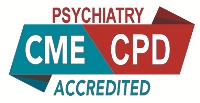Rut Thakkar
Vanderbilt University, USA
Title: Thinking correlates with insight, metacognition and social cognition in the early and prolonged phases of Schizophrenia
Biography
Biography: Rut Thakkar
Abstract
Schizophrenia, the infamous debilitating mental illness, is caused by a multitude of environmental and genetic factors. Behaviors corresponding to abnormal perceptual experiences, social withdrawal and cognitive impairments are symptomatic of the disease with the underlying mechanisms still being obscure. Current psychiatric interventions revolve around cognitive behavioral therapy (CBT), which focuses on encouraging the patient to develop rational thought and interpretations of evidence. Despite its widespread use, this approach along with many others tends to exhibit poor clinical efficacy over the long term. However, the key to a psychiatric intervention could lie in “Abstract thinking”, a core deficit in schizophrenia, characterized by adaptability, flexibility and the use of concepts and generalizations. Although known to be severely diminished, its changes along with the different phases of the illness are still unclear. The limited data available suggests that patients in the earlier phases of schizophrenia tend to have a higher capacity for abstraction than those in the prolonged phases. Supplemental studies further suggest that abstract thinking could be related to clinical insight or the awareness of one’s illness. In this study, we focused on these questions and examined the differences in abstract thinking between two groups; patients with chronic schizophrenia and patients with early onset schizophrenia. Furthermore, we conducted exploratory analyses of abstraction with clinical insight, metacognition and social cognition, hypothesizing that patients with better abstract thinking would possess better insight and cognition. After analyzing the data collected from 70 patients, the results indicate that while abstract thinking did not differ across the phases of the illness, it was significantly correlated with insight, metacognition and social cognition. To explain the relationship between abstract thinking and insight and cognition, a theory could be put forward which asserts that more fluid and liberal thought patterns or higher abstraction would allow patients to contemplate their own illness and its symptoms, providing them with better clinical insight. This relationship could be crucial in developing novel therapeutic approaches for treating psychosis by targeting abstraction to improve insight, leading to better outcomes.

